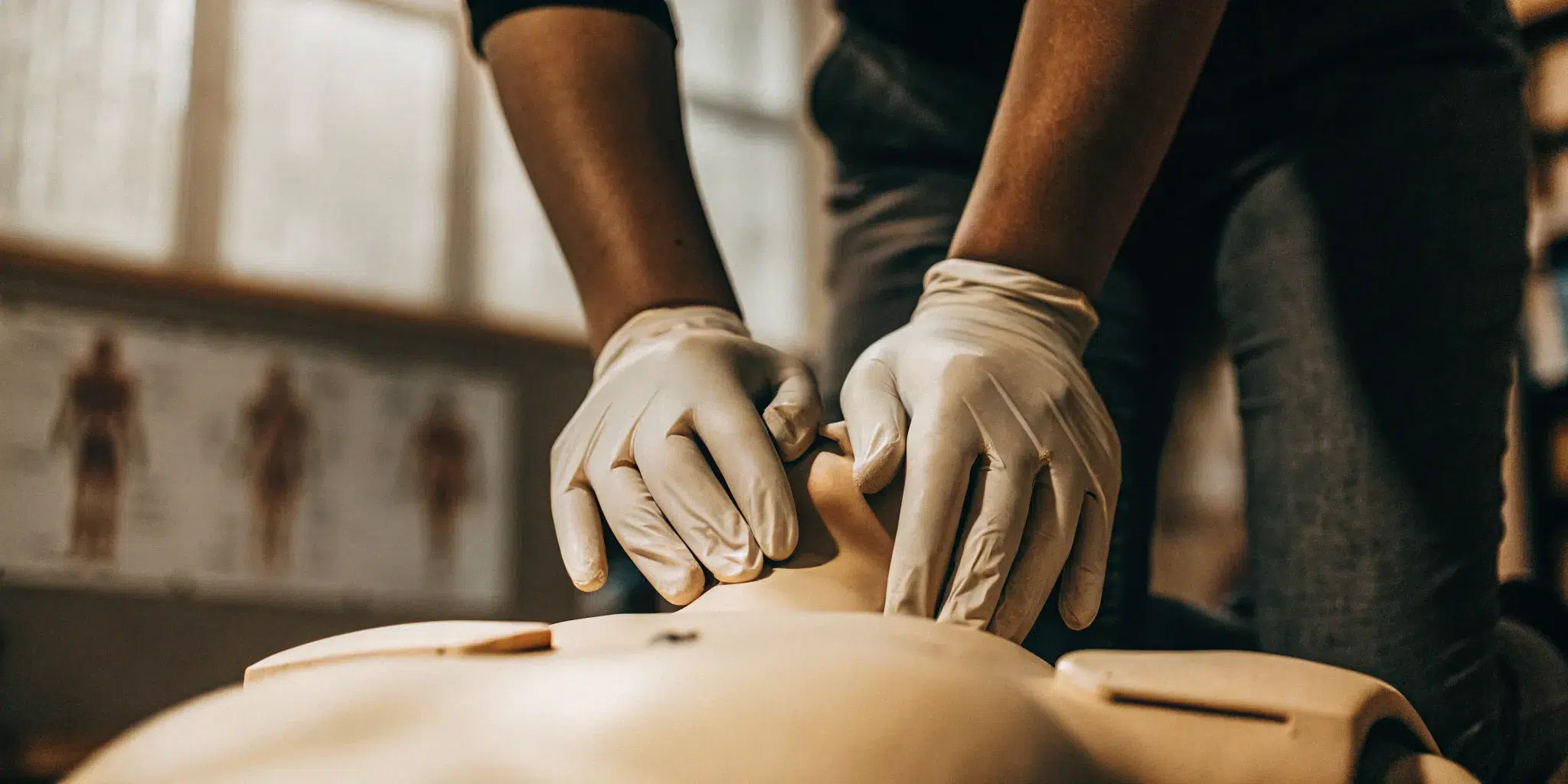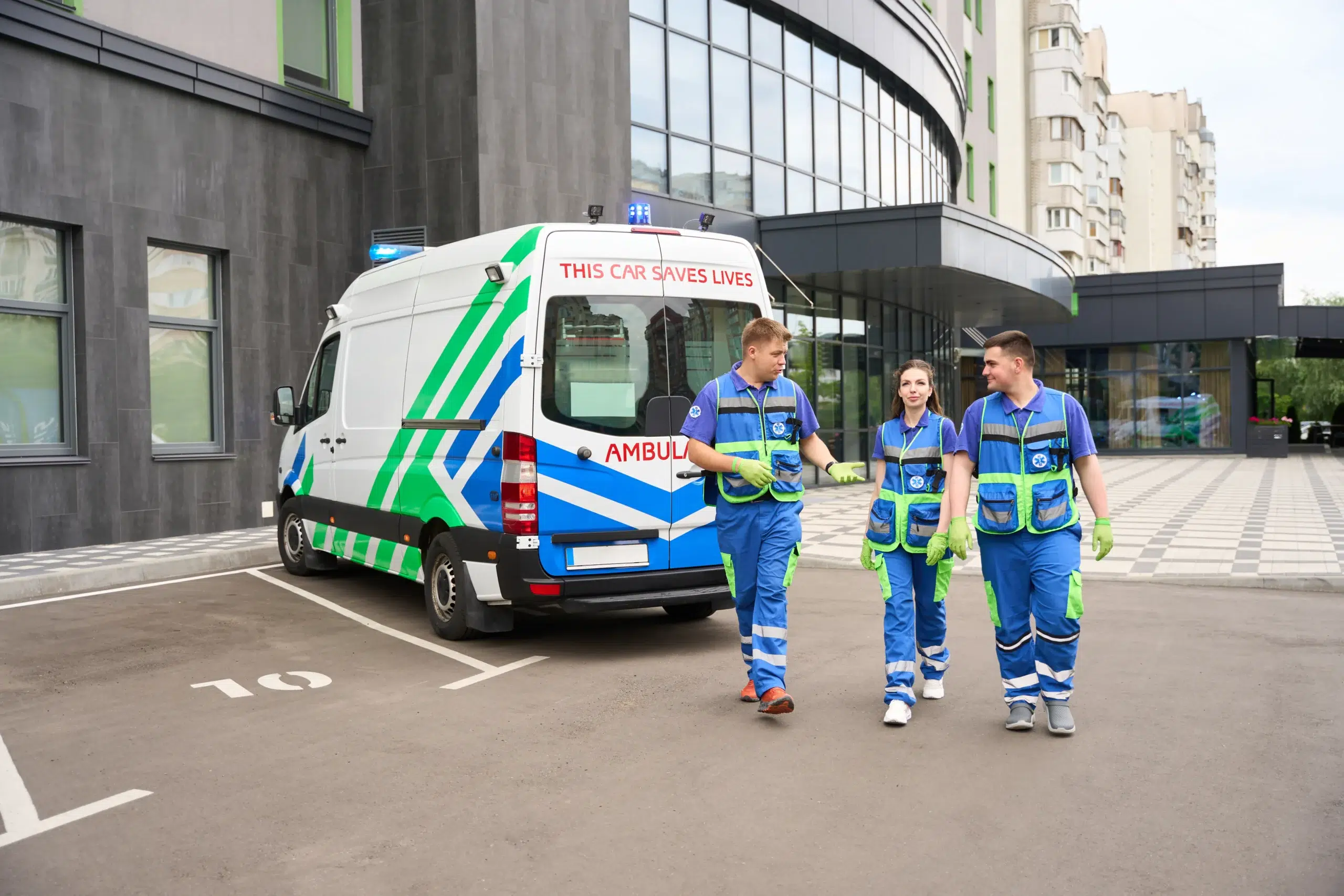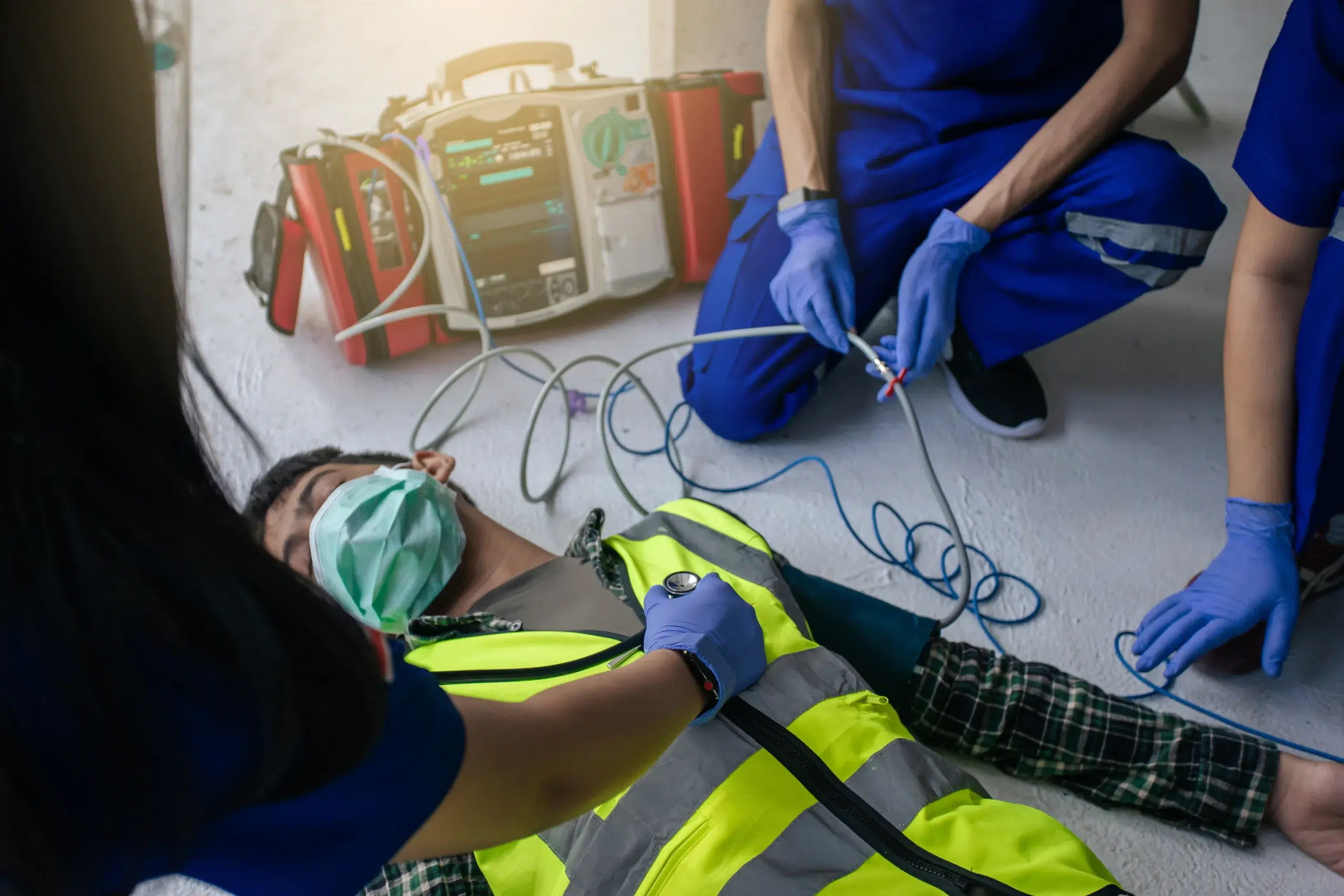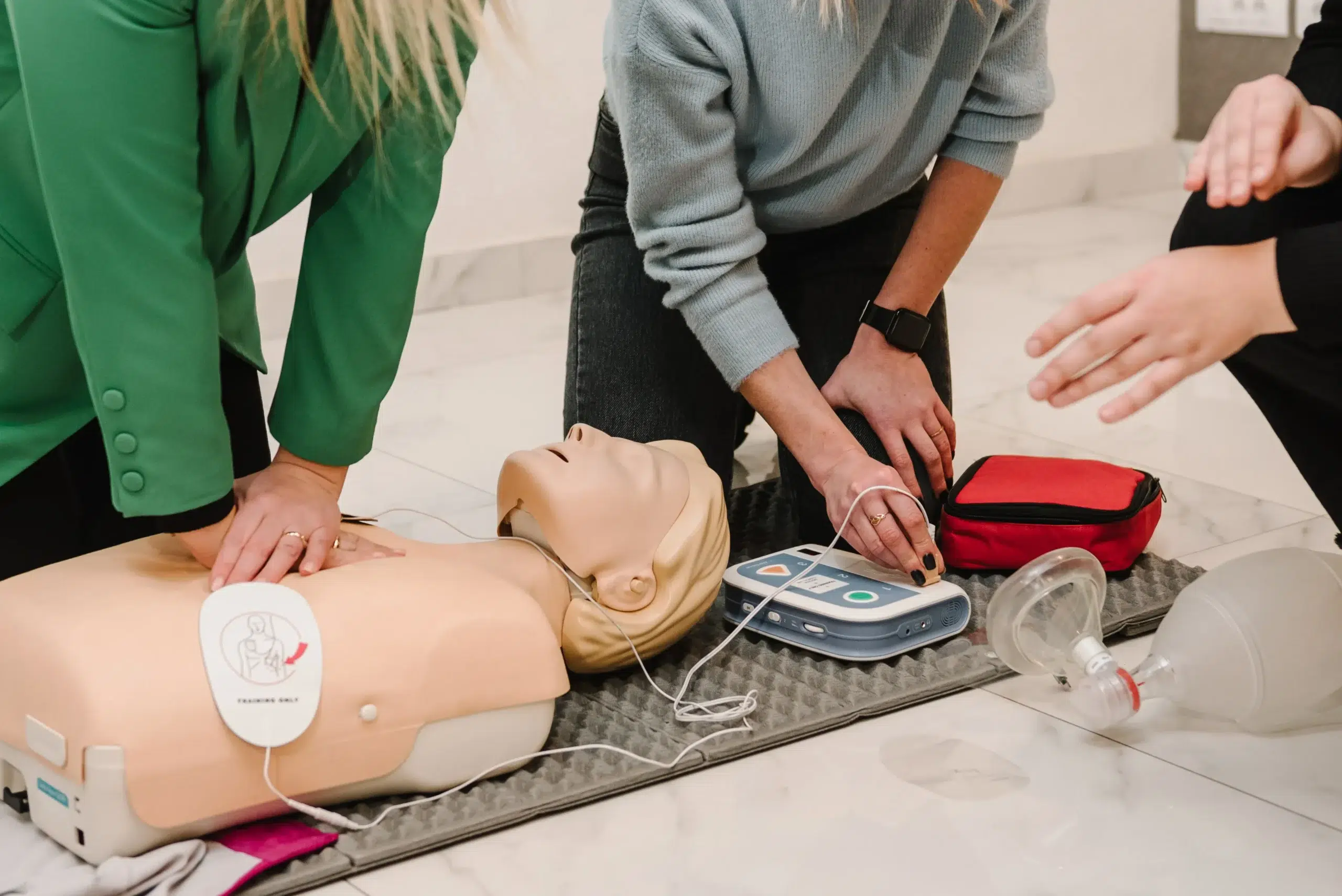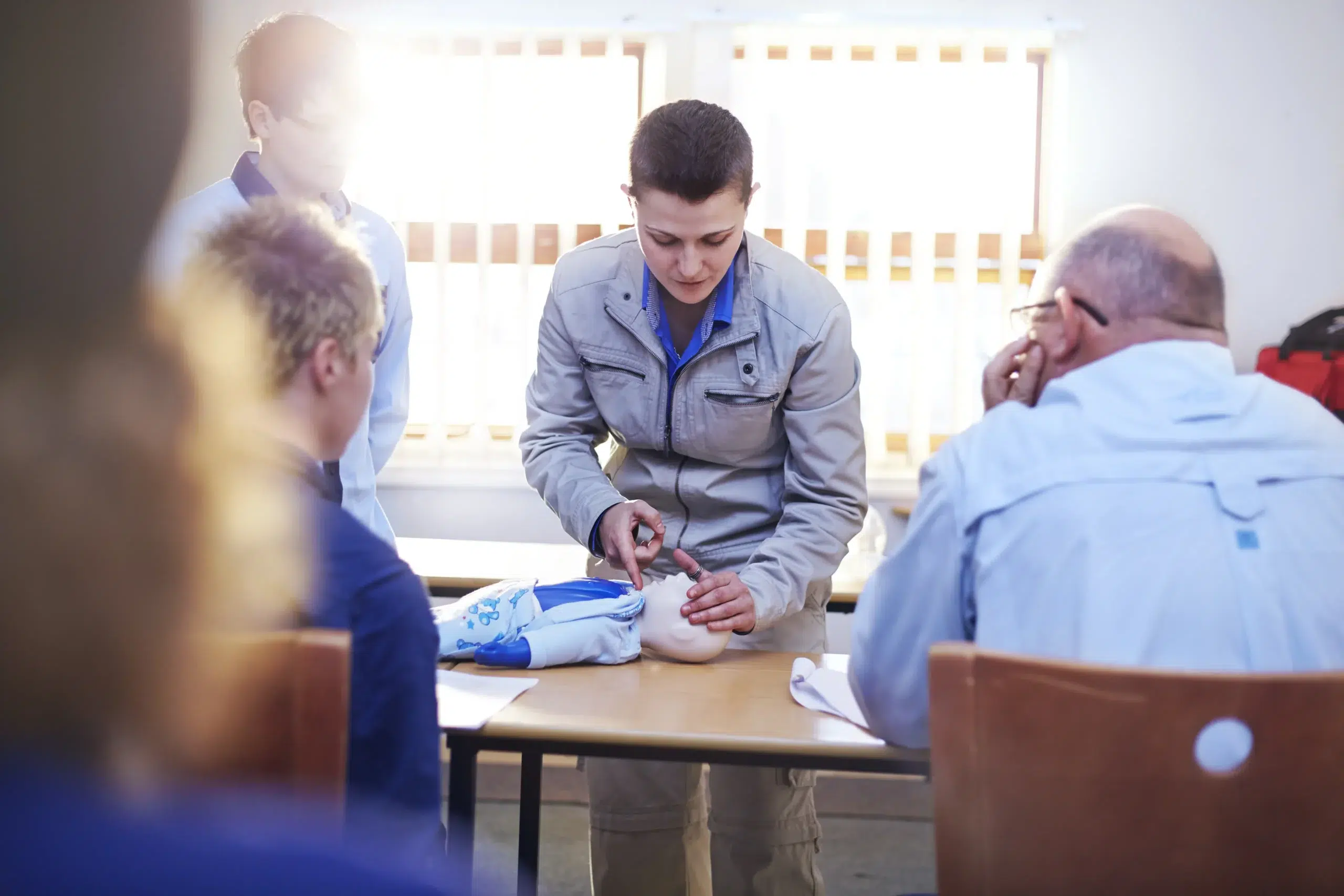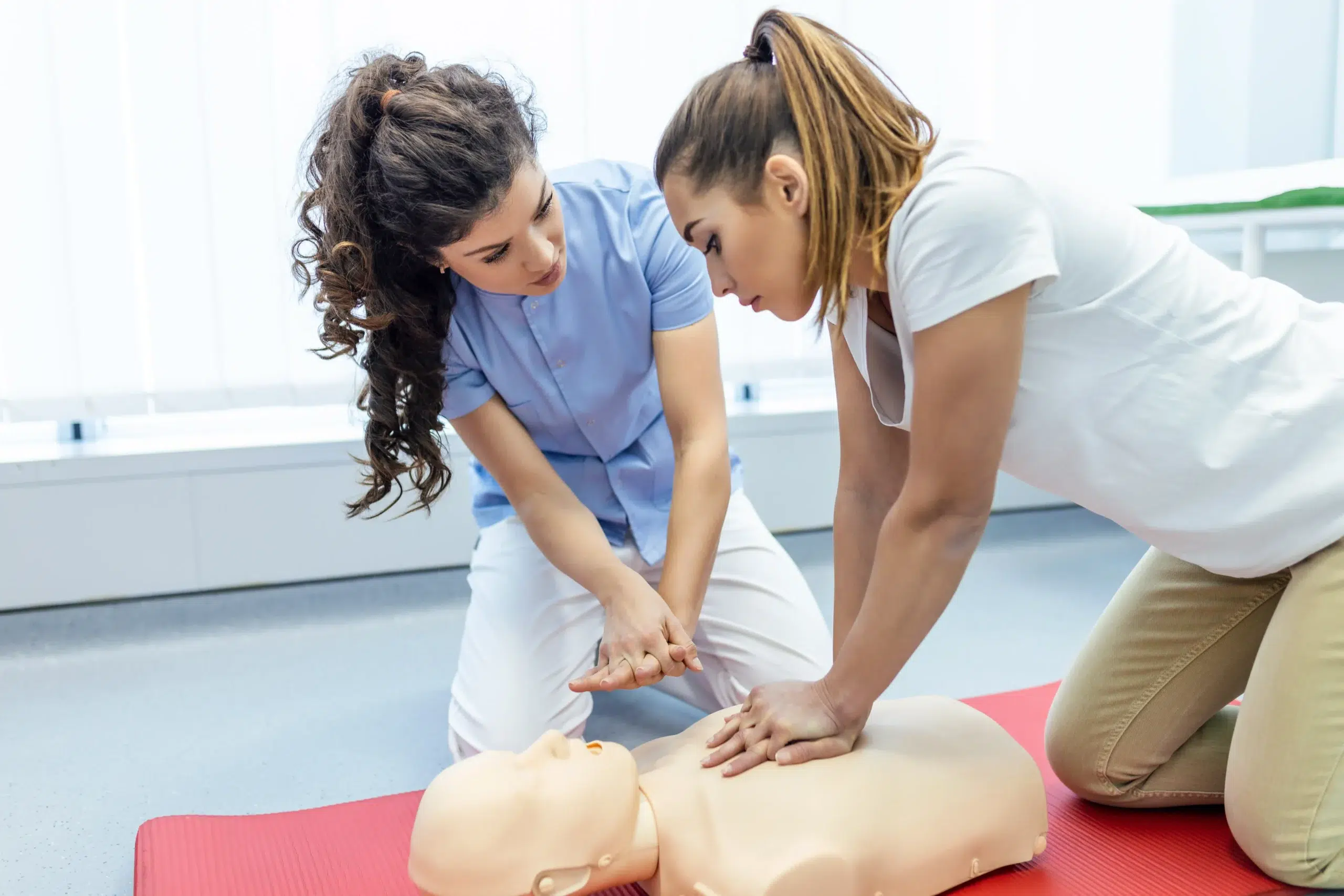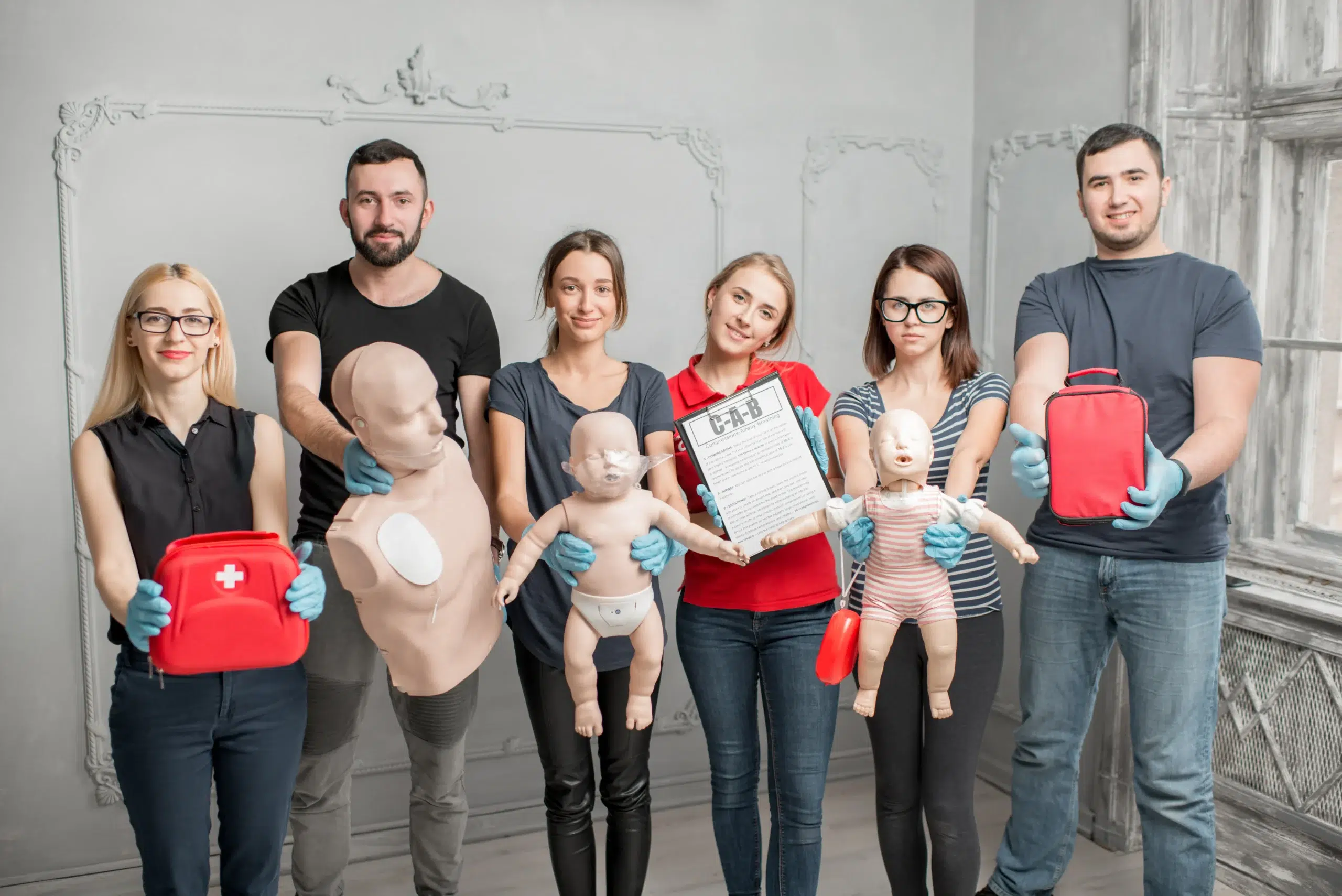Emergencies can happen anytime, anywhere. Being equipped with the skills to respond effectively can make all the difference. This guide explores the world of CPR certification in Walnut Creek, offering a comprehensive look at available cpr classes in Walnut Creek. We’ll break down the different types of CPR classes, including BLS for healthcare providers, CPR and First Aid for the community, and specialized courses like ACLS and PALS. We’ll also discuss how to choose the right class based on your needs, the costs involved, and what to expect during training. Plus, we’ll highlight the benefits of RQI programs and how Pleasant Hill CPR Classes can help you become a certified lifesaver.
Key Takeaways
- Choose the right CPR class: Whether you’re a healthcare provider, caregiver, or community member, various CPR certifications (BLS, ACLS, PALS, First Aid) cater to different needs and experience levels. Consider your career goals and any required certifications to select the most appropriate course.
- CPR training is an investment in yourself and your community: Compare costs, explore group discounts, and understand what’s included in the course fee to find high-quality, affordable training. Convenient options like online registration and blended learning formats make fitting CPR training into your schedule easier.
- Become confident and prepared for emergencies: CPR is a skill anyone can learn. Overcome common concerns and hesitations by focusing on the practical application of these lifesaving techniques. Knowing how to respond effectively in a crisis can make a profound difference.
What is CPR? Walnut Creek Class Guide
CPR, or cardiopulmonary resuscitation, is a lifesaving technique used when someone’s breathing or heartbeat has stopped. It combines chest compressions and rescue breaths to keep blood and oxygen circulating until professional help arrives. Learning CPR empowers you to respond effectively during cardiac arrest and significantly increases the chances of survival. This guide covers everything you need to know about getting CPR certified in Walnut Creek. We’ll explore different CPR class types, how to choose the right one, costs, what to expect during training, and where to find certified instructors. Pleasant Hill CPR Classes, conveniently located near Walnut Creek, offers a variety of American Heart Association courses like BLS, ACLS, and PALS. We also specialize in RQI programs, a streamlined certification designed for medical professionals. Our commitment to low prices and excellent customer service makes us a top choice for CPR training. Contact us to learn more.
CPR Class Types
Choosing the right CPR class is the first step. With different levels and specializations, it’s important to understand what each course offers. Here’s a breakdown of common CPR class types:
CPR for Everyone
This foundational course is perfect for anyone wanting to learn basic life-saving skills. Community members, teachers, parents, and caregivers can all benefit from this training. These classes cover adult, child, and infant CPR, along with AED use and how to respond to choking emergencies. For those in and around Walnut Creek, CPR Education offers CPR training led by American Heart Association-certified instructors with experience in emergency services.
BLS for Healthcare Providers
Healthcare professionals, including doctors, nurses, paramedics, and other medical personnel, often require BLS certification. This course provides a more in-depth look at CPR techniques, including team dynamics and using advanced airway management devices. The Walnut Creek CPR Training Center is one option for AHA-certified BLS training and other advanced life support courses.
ACLS Training
ACLS certification builds upon the skills learned in BLS, focusing on managing cardiovascular emergencies like heart attacks and strokes. This course is designed for healthcare providers who lead or participate in resuscitation teams. Pleasant Hill CPR Classes offers ACLS training as part of its comprehensive course selection.
PALS Certification
PALS certification is specifically for healthcare providers who treat infants and children. The course emphasizes the unique physiological differences between pediatric and adult patients, covering topics like respiratory distress, shock, and cardiac arrest in young children. PALS training is available at Pleasant Hill CPR Classes.
First Aid Basics
While not strictly CPR, First Aid training is a valuable companion skill. Knowing how to treat minor injuries, control bleeding, and manage other medical emergencies can make a real difference until professional help arrives. Often, you can find combined CPR and First Aid certification courses in Walnut Creek, providing you with a well-rounded set of emergency response skills. This comprehensive approach can be especially helpful in various situations.
Choose the Right CPR Class
Finding the right CPR class can feel overwhelming, but it doesn’t have to be. By considering a few key factors, you can easily identify the perfect course for your needs.
Check Certification Requirements
Before you start searching for CPR classes, take a moment to think about your specific certification requirements. Different professions and organizations often mandate particular types of CPR training. For example, healthcare professionals in Walnut Creek frequently require the American Heart Association’s RQI (Resuscitation Quality Improvement) program for BLS, ACLS, and PALS certifications. Pleasant Hill CPR Classes offers a variety of AHA-compliant courses designed to meet these standards. Knowing the necessary certifications upfront streamlines your search and ensures you enroll in the appropriate program. Check with your employer or licensing board to determine the exact certifications you need.
Evaluate Your Skill Level
CPR training caters to individuals with varying levels of experience. Are you a complete beginner, or are you looking to renew an existing certification? Honestly assessing your current skill level helps you find a class that builds upon your existing knowledge or provides a solid foundation if you’re starting from scratch. Pleasant Hill CPR Classes offers CPR training tailored to different experience levels, ensuring everyone receives the appropriate instruction.
Consider Your Career
Your career aspirations also play a significant role in selecting the right CPR class. If you’re pursuing a career in healthcare, certifications like BLS (Basic Life Support), ACLS (Advanced Cardiovascular Life Support), and PALS (Pediatric Advanced Life Support) are often essential. Even if you’re not in the medical field, understanding CPR and basic first aid can be a valuable asset in any profession, especially those involving children, like teaching or childcare. Think about your current role and future career goals to determine which certifications will best support your professional development. Contact Pleasant Hill CPR Classes to discuss your career goals and find the right CPR class for you.
CPR Class Costs & Value in Walnut Creek
Finding the right CPR class often involves balancing quality with cost. Let’s break down what you can expect regarding CPR class pricing in Walnut Creek and the value you receive for your investment.
Class Prices
CPR class prices in Walnut Creek vary based on the provider and the type of certification. While many providers advertise competitive rates, comparing prices from a few different sources is always wise. Contacting providers directly to ask about current specials or discounts is also a good strategy. A seemingly higher initial price can sometimes offer more value if it includes additional resources or perks.
Group Discounts
If you need to train a group, whether for work, a community organization, or a group of friends, ask about group discounts. Many CPR training centers offer reduced rates for group bookings. This can be a cost-effective way to get everyone certified together. Pleasant Hill CPR Classes offers these discounts, making training more accessible for larger groups. Be sure to ask about the minimum group size required for a discount.
What Your Fee Covers
Understanding what your CPR class fee covers helps you assess the overall value. Typically, the fee includes instruction, course materials, and your American Heart Association certification card, valid for two years. Some providers might also include additional resources, such as online refresher materials or practice sessions. For healthcare professionals, the fee for an RQI program often covers the streamlined RQI certification process for BLS, ACLS, and PALS. This efficient approach is especially helpful for busy medical professionals who need to maintain their certifications.
Instructor Expertise
When your health is on the line, you want to know you’re in capable hands. Choosing CPR classes with experienced, certified instructors is crucial. Here’s what to look for in Walnut Creek:
AHA Certification
The American Heart Association (AHA) sets the standard for high-quality CPR training. Look for classes taught by AHA-certified instructors like those at Pleasant Hill CPR Classes. This certification ensures the training aligns with the most current, science-backed guidelines, giving you confidence in the quality of instruction.
Emergency Services Experience
Beyond certification, real-world experience adds another layer of valuable insight. Instructors with backgrounds in emergency services, such as EMTs or paramedics, bring practical knowledge to the classroom. They can share firsthand perspectives and answer your questions based on real-life scenarios. Pleasant Hill CPR Classes often features instructors with these backgrounds, enriching your learning experience. Contact us to learn more about our instructors and their qualifications.
Register & Get Certified
Register Online or In-Person
Signing up for a CPR class in Walnut Creek is straightforward. Pleasant Hill CPR Classes offers convenient online registration for all courses, making it easy to find a class time that fits your schedule. We also understand that sometimes you might prefer a personal touch. Feel free to contact us directly, and our team will gladly assist you with the registration process.
Class Length & Format
CPR class times vary depending on the course type. A BLS CPR class typically lasts between four and six hours. This timeframe allows for thorough instruction and ample hands-on practice. Other courses, such as ACLS and PALS, may have different durations, so check our website for specific course details. We offer a variety of learning formats, including traditional classroom settings and blended learning options that combine online coursework with in-person skills sessions.
Certification & Renewal
After successfully completing your CPR class, you’ll receive an American Heart Association (AHA) certification card, valid for two years. This nationally recognized certification demonstrates your ability to perform CPR and other lifesaving techniques. We also provide digital certificates for easy access to your training records and certification history. To maintain your skills and certification, consider taking one of our refresher courses when your certification is close to expiring.
Your CPR Class Experience
Knowing what to expect can make taking a CPR class less intimidating. From hands-on practice to the exam and certification process, here’s a look at the typical CPR class experience.
Hands-on Practice
CPR classes aren’t just lectures. You’ll learn the skills through hands-on practice, working with mannequins to perform chest compressions, rescue breaths, and other essential techniques. This practical training builds your muscle memory and confidence, preparing you to respond effectively in a real emergency. These skills and knowledge are crucial for responding effectively in emergencies.
Exams
Most CPR classes include a written exam to assess your understanding of the material. Don’t worry, the exam focuses on practical application rather than rote memorization. It’s designed to ensure you grasp the core concepts and can apply them in a real-life scenario.
Digital Certification
After successfully completing the course and exam, you’ll receive a digital certificate, often valid for two years, providing access to your training history. Some programs, like the American Heart Association RQI program, offer a streamlined digital certification process. This makes it easy for healthcare professionals to maintain their BLS, ACLS, and PALS certifications. The RQI program is a popular and efficient way for medical professionals to get certified.
CPR Class Providers in Walnut Creek
Finding the right CPR class in Walnut Creek depends on your specific needs and preferences. Here’s a rundown of providers in the area:
Pleasant Hill CPR Classes
Pleasant Hill CPR Classes offers a comprehensive range of American Heart Association (AHA) training courses, including BLS, ACLS, PALS, CPR and First Aid, and more. They focus on providing convenient daily certifications, discount group classes, and a low-price guarantee. Their specialization in RQI programs makes them a practical choice for medical professionals seeking efficient recertification. Serving Walnut Creek, Concord, and Pleasant Hill, they offer accessible, high-quality training. Contact Pleasant Hill CPR to learn more.
American Red Cross
The American Red Cross provides a blended learning approach to CPR certification. Their online portion covers the knowledge base for adult, child, and infant CPR, AED use, and First Aid. To complete your certification, you’ll need to attend an in-person skills session within 90 days of finishing the online course. This hybrid model offers flexibility for those with busy schedules.
Hospitals & Medical Centers
Local hospitals and medical centers in Walnut Creek sometimes offer CPR classes to the public. Check with facilities like John Muir Health or Sutter Delta Medical Center for potential course availability. These classes can be a good option for those seeking training directly from healthcare professionals. Since schedules and offerings can vary, contacting the specific facility is essential.
Community Colleges
Community colleges in the Contra Costa area, such as Diablo Valley College, may offer CPR and First Aid courses as part of their continuing education programs. These courses often provide a cost-effective way to learn these essential skills. Check their course catalogs or websites for more information. Additionally, independent training centers like Safety Training Seminars offer AHA-certified courses in Walnut Creek, providing another convenient option.
Flexible Learning & Support
Finding the right CPR class often comes down to format and scheduling. Luckily, there are several options available in Walnut Creek to fit your needs. Whether you prefer hands-on, in-person training or the flexibility of online learning, you can find a course that works for you. Plus, ongoing support and resources are available to help you maintain your skills and stay up-to-date.
In-Person & On-Site Training
Many people learn best in a traditional classroom setting. In-person CPR training offers hands-on practice and direct interaction with an instructor. This format allows you to ask questions, get personalized feedback, and practice your skills in a supportive environment. Pleasant Hill CPR Classes offers in-person training in Walnut Creek and the surrounding areas. Group classes are also available, which can be a great option for workplaces or community organizations.
Blended Learning
For those seeking a more flexible approach, blended learning combines online coursework with in-person skills sessions. This format allows you to learn the theoretical aspects of CPR at your own pace, then practice your skills with a certified instructor. The American Heart Association’s RQI program is a popular example of blended learning, offering an efficient way for healthcare professionals to get certified and maintain their credentials.
Refresher Courses
Staying current with your CPR certification is essential. Refresher courses are designed to keep your skills sharp and ensure you’re prepared for any emergency. Some providers offer online skill checks and renewal options, making it easy to stay certified. Check with your chosen training center for available refresher courses in Walnut Creek.
Community Resources
Walnut Creek offers a variety of community resources to support your ongoing learning and involvement in emergency preparedness. If you’re interested in becoming more involved in your community’s emergency response efforts, consider joining the Walnut Creek Community Emergency Response Team (CERT). CERT programs provide valuable training and opportunities to assist first responders during emergencies.
Common CPR Concerns
It’s normal to have a few hesitations about learning CPR. Let’s address some common concerns:
“Only Medical Professionals Can Do CPR”
One of the biggest myths surrounding CPR is that it’s exclusively for doctors and nurses. This misconception can be dangerous, preventing people from helping in emergencies. The truth is, anyone can learn CPR. Quick action by a bystander can dramatically improve someone’s chances of survival during cardiac arrest. Even without medical training, your actions can make a real difference while waiting for professional help. Learn more about how bystanders can provide effective CPR.
“CPR is Too Hard”
Many people worry that CPR is too complex to learn or perform correctly. They might be afraid of making a mistake, causing further injury, or the prospect of mouth-to-mouth resuscitation. These are valid concerns, but CPR techniques have evolved. Hands-only CPR is now widely recommended and much simpler to learn, empowering anyone to assist in an emergency. Explore common misconceptions about CPR and discover how straightforward learning this life-saving skill can be.
“I Won’t Use These Skills”
It’s easy to think you’ll never need CPR. Emergencies, however, can happen anytime, anywhere. While we hope you never have to use these skills, being prepared can truly save a life. Learning CPR isn’t just about acquiring a skill; it’s about gaining the confidence to act quickly and effectively under pressure. Empower yourself with the knowledge and skills to respond to emergencies.
Related Articles
- CPR, BLS, ACLS, PALS, & First-aid Courses in Pleasant Hill, CA
- The Importance of CPR in Saving Lives – Pleasant Hill CPR Classes
- The Science Behind Effective CPR: A Comprehensive Guide
- Debunking Common CPR Myths for Lifesaving Confidence
- Discount Group Classes – Pleasant Hill CPR Classes
Frequently Asked Questions
What’s the difference between CPR and First Aid?
CPR focuses on restoring breathing and circulation when someone’s heart has stopped or they’re not breathing. First Aid covers a broader range of medical emergencies, from minor injuries like cuts and burns to more serious situations like choking or allergic reactions. While distinct, they complement each other, providing a comprehensive approach to emergency response.
How do I choose the right CPR class in Walnut Creek?
Consider your certification requirements, current skill level, and career goals. If you’re unsure, reach out to a training provider like Pleasant Hill CPR Classes. They can guide you toward the appropriate course based on your specific needs. Also, think about factors like class format (in-person, blended learning) and scheduling to find a class that fits your lifestyle.
How much do CPR classes cost in Walnut Creek?
Costs vary depending on the provider, course type, and any included resources. Expect to pay a bit more for advanced certifications like ACLS or PALS compared to basic CPR training. Check with different providers for current pricing and ask about potential discounts, especially for group registrations. Remember to factor in the value you receive, including instruction, materials, and certification.
What if I’m nervous about performing CPR in a real emergency?
It’s completely normal to feel apprehensive. CPR classes emphasize hands-on practice to build your confidence and muscle memory. Instructors create a supportive learning environment where you can ask questions and address your concerns. Remember, even basic CPR can significantly improve someone’s chances of survival, and your willingness to act can make all the difference.
How can I stay up-to-date with my CPR skills after getting certified?
Most CPR certifications are valid for two years. Look for refresher courses offered by your initial training provider or other organizations like the American Red Cross. These courses help you maintain your skills and ensure you’re prepared to respond effectively in an emergency. Some providers also offer online resources and skill checks to help you stay current between refresher courses.
